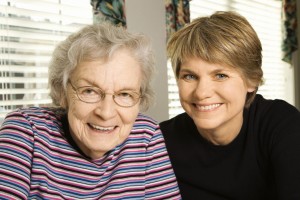Financial advisors and estate planning experts are reporting that they are seeing an increase in the number of grandparents who are helping to raise their grandchildren. For many, that added financial responsibility means that plans for retirement must be put on hold.
More than 2.6 million grandparents were raising grandchildren below the age of 18 as of 2011, according to the U.S. Census. Many households are disrupted due to underemployment, divorce, mental health or substance abuse issues or chronic illness. When adult children are not able to fully parent their own children, other family members often step in, and many times, custody of the children falls to the grandparents. That addition to the household means that more funds are needed for food and clothing; add in school supplies, sports and leisure activities and even basic entertainment, and a comfortable budget for two retirees can quickly be stretched to the breaking point, not to mention the emotional toll.
Merrill Lynch ran a survey of retirees in early 2013. Thirty-five percent of responding grandparents stated that they expect they will have to provide financial support for their grandchildren: 43 percent of those respondents stated that they will be providing financial support; 38 percent believe they will be paying for housing; 30 percent will be paying for education; and 25 percent are planning to pay for health care.
Even when grandparents are not shouldering the entire burden, many grandparents report that they are helping to “bridge the financial gap,” paying for some items or providing ongoing monthly funds to help make ends meet. And when some families are more financially secure than others, issues of resentment can build. That and the tax implications of gifts and estate tax is why so many estate planning attorneys strongly suggest that families look into setting up trusts with specific guidelines.
In addition to looking at financial estate plan issues, any grandparents who are parenting or co-parenting grandchildren should speak with an attorney to make sure guardianship issues are formalized. A guardianship that must be declared through the courts during an emergency is unpleasant for everyone involved.
For more information about our legal services, visit www.littmankrooks.com.




